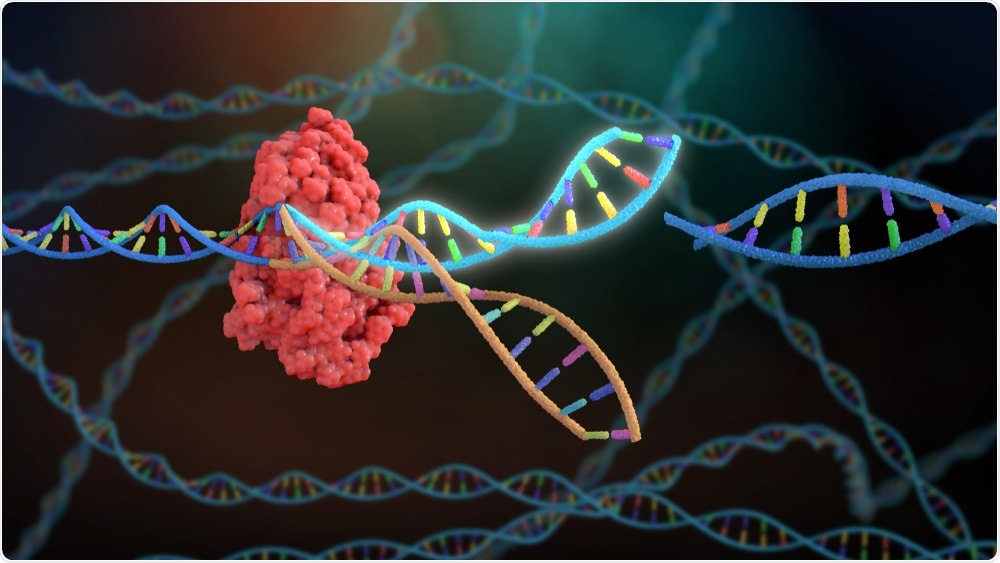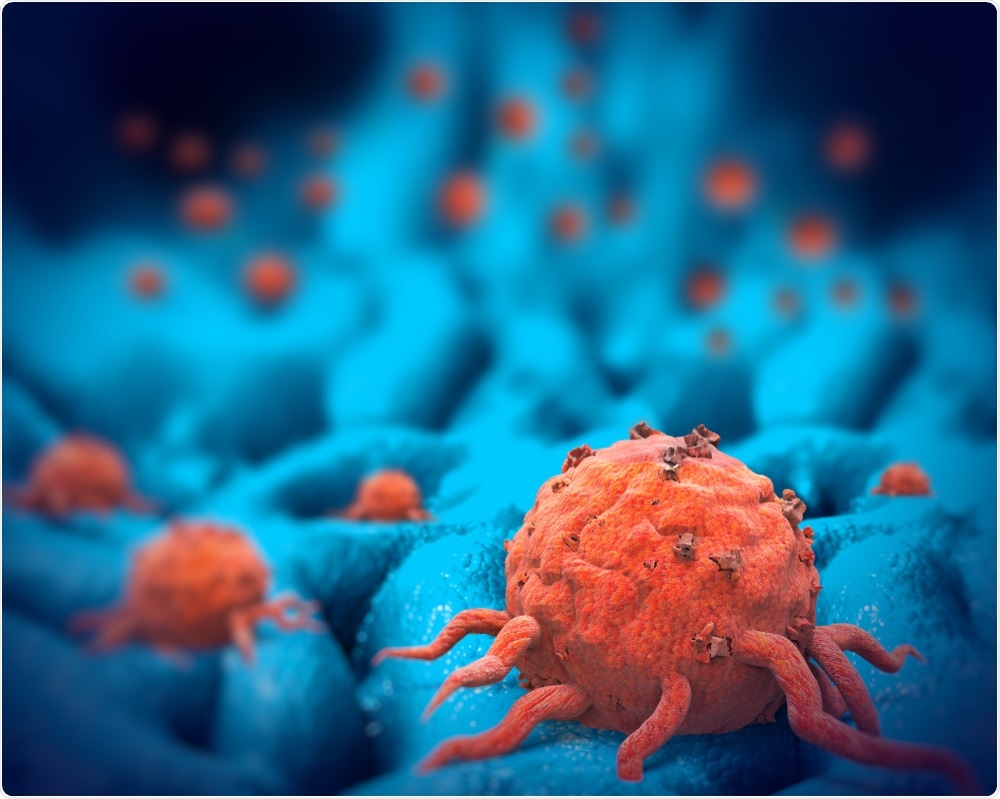What inspired your research into CRISPR and gene editing?
Normal cells decide when to stop dividing by sensing the cell density around them, but this control mechanism is lost in cancer cells. We wanted to discover the molecular basis of this behavior.
Identifying genes of interest among thousands of other genes in the genome is an extremely challenging problem. Using a whole-genome CRISPR library that introduces individual mutations in each gene in the genome can serve as a powerful tool to find genes of interest.

CRISPR. Image Credit: Nathan Devery/Shutterstock.com
CRISPR is now one of the most significant developments within science. Why is this?
CRISPR technology allows precise editing of gene sequences, which makes it an incredible tool for discovery in the biomedical field. It is cheap, quick, simple to perform, and very efficient.
What role do epithelial cells play in tumor development?
Epithelial cells form the skin and many internal organs, creating a barrier between us and the external environment. To build an organism, such as a human being, it is essential that these cells only grow until they reach a certain density so that the sizes of our tissues and organs all remain in the correct proportions to one another.
80 to 90% of malignant tumors arise from epithelial cells. Therefore, it is very important to study the mechanisms that maintain epithelial cells in their normal, non-transformed state, and how these mechanisms can be disrupted.
Can you describe how you developed your new genome-wide CRISPR screening technique?
Our goal was to find genes that normally stop epithelial cells from dividing when they reach the correct density. As mentioned above, we chose to use a whole-genome CRISPR library to introduce individual mutations into each gene in the genome. The idea is that a few of these genes control tissue growth, so if we damage them the cells will continue to grow instead of stopping at the correct time.
The problem was how to find these few genes among the tens of thousands of genes we were mutating using CRISPR. To solve this problem, we developed a method to select the cells we wanted. We introduced a marker of cell division called FUCCI in our cells. It labels cells with green when cells are in a proliferative state. Then we grew cells to high density and selected cells that still proliferated using fluorescence-activated cell sorting.

Cancer Cells. Image Credit: Giovanni Cancemi/Shutterstock.com
How does your new CRISPR screening technique offer new insights into tumor development?
Our new screening approach allowed us to find two novel and unexpected regulators of cell density – the TRAF3 and UBC12 proteins.
Our studies showed that loss of TRAF3 induces innate immunity and prevents cells from entering a resting, non-dividing state. The mechanisms of UBC12-dependent density control remain to be studied.
Do you believe that with more research we could further understand the mechanism behind cancer?
To fight cancer, we need to know the mechanisms of its development. To understand cancer we also first need to understand how normal cells and tissues grow and how they regulate their growth. That is the reason why basic research is such an important step towards creating new cancer treatments.
Our research found novel regulators of cell density, which need to be studied further for a better understanding of their involvement in cancer development.
What are the next steps in your research?
We can improve this screening technique to find more regulators of cell density or develop another novel screening approach to study other aspects of epithelial cell functioning.
Also, we observed increased cell division and cell density after wiping out TRAF3 by CRISPR technology, but we do not yet know what natural conditions cause loss of TRAF3. It has been shown before that TRAF3 can be degraded upon damage or infection. In the future, our goal is to test different infection or damage signals to find the one(s) that turn off TRAF3 to allow over-proliferation. We also aim to test whether these events can lead to cancer.
Where can readers find more information?
Please find the article here: https://elifesciences.org/articles/63603#
About Professor Ian Macara
Ian Macara is a Professor and Chair of the Department of Cell and Developmental Biology at Vanderbilt School of Medicine and holds a Louise B. McGavock endowed chair.
Maria Fomicheva performed this project as a part of her Ph.D. program at Vanderbilt University.